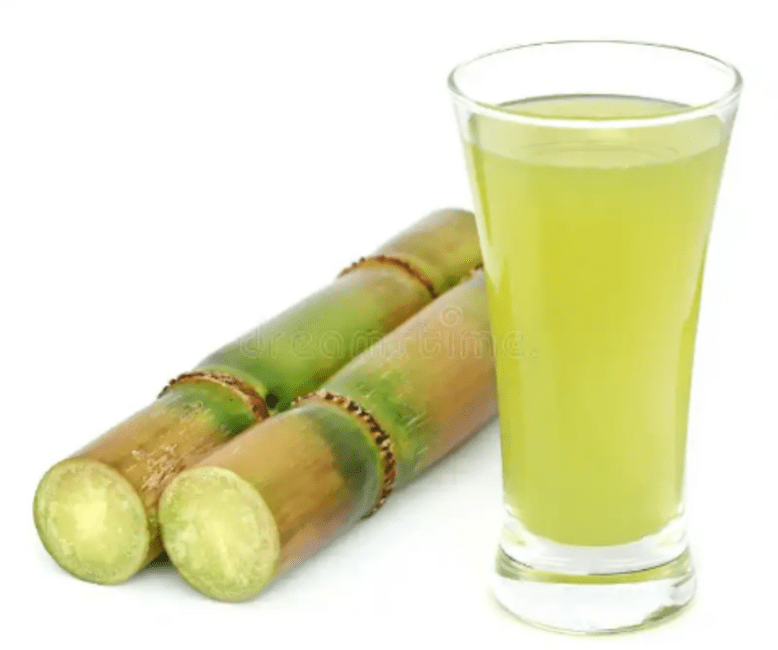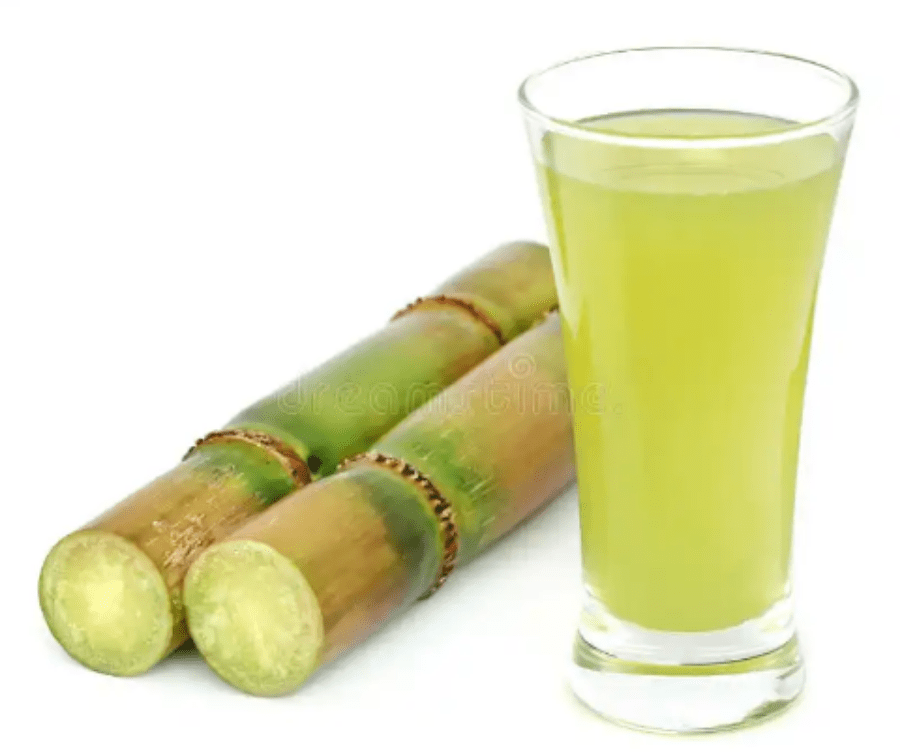Sugarcane Juice health benefits includes: slowing down aging process, promoting weight loss, regulating blood sugar levels, strengthening immune system, relieving stress, supporting cardiovascular health, fighting kidney stones, supporting dental health, and improving digestion.
Sugarcane is rich in antioxidants so it helps fights infections and boost the immunity.
It’s rich in iron, magnesium, calcium and other electrolytes so it’s great for dehydration.
It helps cure the common cold and other infections and also fight fever as it boosts the body’s protein levels.
Health Benefits of Sugar Cane Juice
Below are the six (6) amazing health benefits of sugar cane juice you should be aware of
1) Can Treat Kidney Stone
One of the most important health benefits of sugarcane juice is that it is a diuretic which means that it helps treat urinary tract infections, kidney stones and ensure proper functioning of the kidneys.
2) Remedy For Jaundice
Sugarcane juice helps strengthen your liver and is thus suggested as a remedy for jaundice.
Jaundice is a condition where you find yellow pigmentation of the skin and membrane due to elevated levels of a substance known as bilirubin in the bodily fluids and is triggered by poor functioning liver.
What sugarcane juice does is replenish your body with proteins lost and nutrients that it needs to recover quickly.
3) Rich in Carbohydrates and Proteins
Another important health benefit of sugarcane juice is due to it being rich in the good kind of carbohydrates, protein, iron, potassium and other essential nutrients that make it the ideal energy drinks.
Especially in the summer months, a glass of cold sugarcane juice will enhance both your health and your depleting levels of energy. It builds up plasma and body fluids and helps counter dryness and fatigue.
Read Also: Health Benefits of Watermelon
3) Exhibits Laxative
Sugarcane juice exhibits laxative properties thereby improving bowel movement and relieving constipation’.
Sugarcane juice also has alkaline properties which means it’s good for treating acidity and stomach burns.

5) Remedy for Diabetes
It has a low glycemic index (GI) so it comes highly recommended for diabetics.
A study showed that drinking sugarcane juice did not alter the blood glucose levels of diabetics drastically but you should check with your doctor before you start to drink some of this yourself.
6) Helpful in Prevention of Bad Breath and Tooth Decay
Sugarcane juice is extremely rich in minerals which helps prevent tooth decay and bad breath.
Every time you feel like you need to replenish your body and re-hydrate during the summers, grab that glass of chilled sugar cane juice and enjoy its benefits!.
Facts about Sugar Cane
Nearly 90% of the weight of the cane is juice, which contains up to 17% sucrose (common sugar) and small amounts of dextrose and fructose.
Sugar cane was possibly the first industrial crop and has a long association with slave labor.
It was taken to the New World by Columbus as a potential cash crop and by 1600 sugar production in the subtropical and tropical Americas had become the world’s largest and most lucrative industry.
Harsh conditions and the influx of diseases soon decimated the local Caribbean population, so African slaves were brought in.
The Caribbean was the centre of world sugar production from the 1650s until the 1850s.
Sugar cane is now grown in over 100 countries, most of which are underdeveloped.
The world sugar trade is complex and controversial as production costs differ around the world.
Some think that sugar trade agreements can act as an effective way of providing aid that has a beneficial effect on the communities in developing countries.
The swollen roots of another plant, sugar beet (Beta vulgaris), also make a major contribution to the world population’s seemingly unstoppable craving for sugar.
Uses of Sugar Cane
Sugar cane can also provide renewable energy: in sugar-producing countries bagasse (waste fibre) and trash (dead leaves) provides electricity and heat for sugar processing and the local community and industry; bioethanol fermented from sugars extracted from cane juice can produce fuel for cars.
Read Also: Guide on How to Make Bread with Cassava Flour
